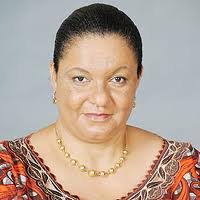Ms Hannah Tetteh, Minister of Trade and Industry, has observed that public and individual safety could be better ensured through the use of technical regulations and codes, Legislative Instruments, bye-laws among other interventions.
"We need to mount vigorous campaigns on items that have been banned by the country's laws, such as refrigerators and under garments," she stressed.
Ms Tetteh made the observation in a speech read on her behalf, at the World Metrology Day celebration in Accra on Friday, on the local theme: "We Measure For Your Safety," whilst the global theme is: "Metrology For Safety."
Metrology is the science of measurement, and on May 20, 1875, representatives of 17 nations, signed the Metre Convention.
Ms Tetteh said there was the need for the nation to pay attention to environmental degradation, poor disposal of waste and to avoid the construction of buildings in water ways and under high tensions.
"This calls for intense collaboration between Ghana Standards Authority, consumers and regulatory agencies in the country," she added.
The Sector Minister noted that, adhering to standard measurement systems, promotes socio-economic progress.
Dr George Ben Crentsil, Acting Executive Director of Ghana Standards Authority, in a speech read on his behalf, said the theme for the celebration reflected the importance of obtaining reliable measurement results to ensure human safety.
"Just like metrology, the term safety covers a wide spectrum of topics, but many people are unaware of the vital role played by world-wide metrology community," he said.
Dr Crentsil said it was the responsibility of metrologists to ensure that, there exist trustworthy measurement results.
He said the connection between the accuracy of tyre pressure gauges, speedometers, radar equipment for the measurement of speed in vehicles and the protection of lives and property was a typical example of the importance of metrology in the human world.
"Whatever people do, whichever way they turn, their safety depends on the metrology community doing their job well," Dr Crentsil said.**
Regional News of Friday, 18 May 2012
Source: GNA
Acurate regulation crucial to human safety - Hannah Tetteh

















